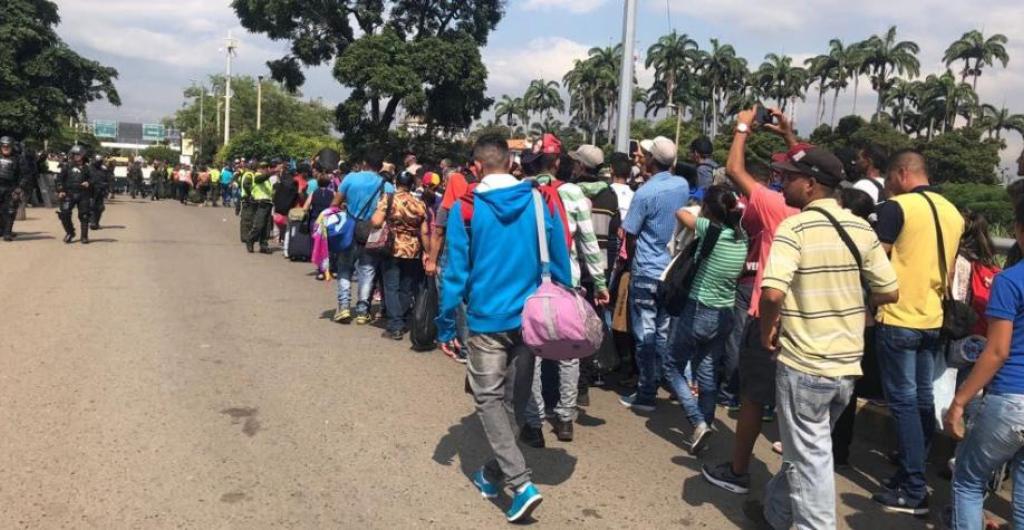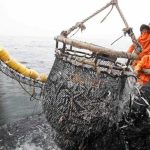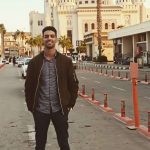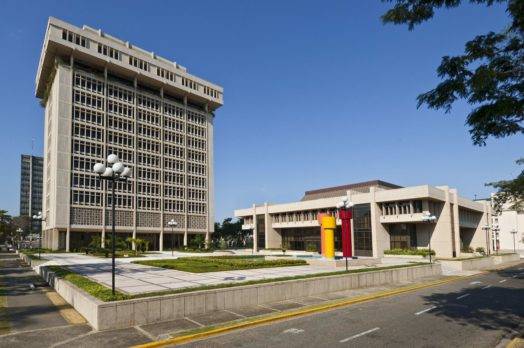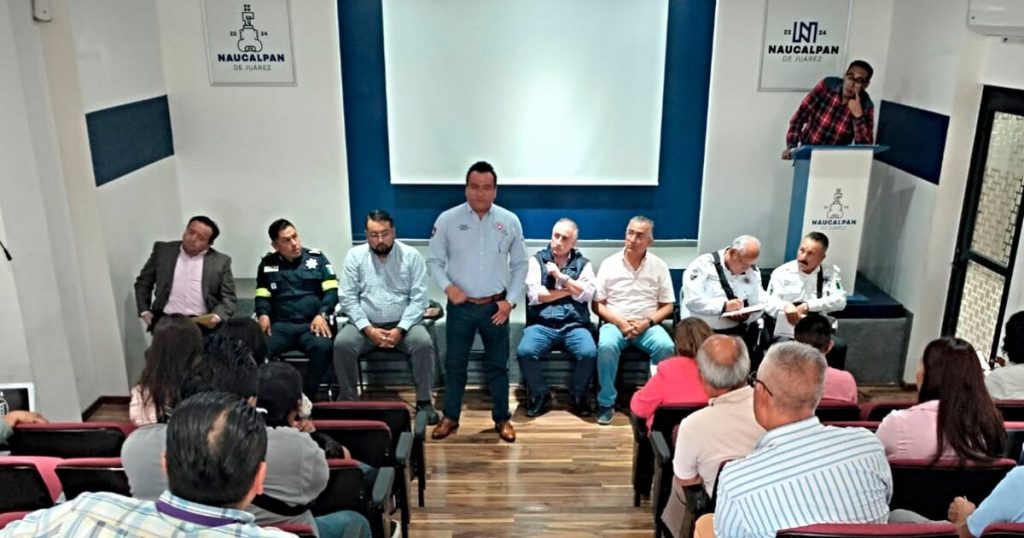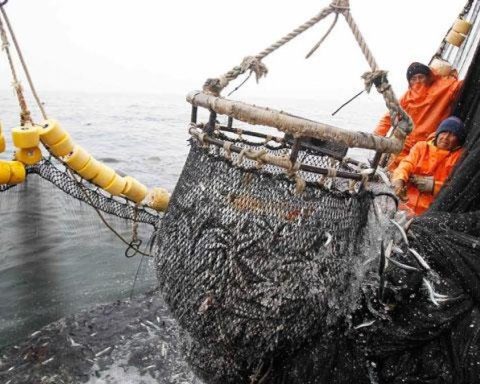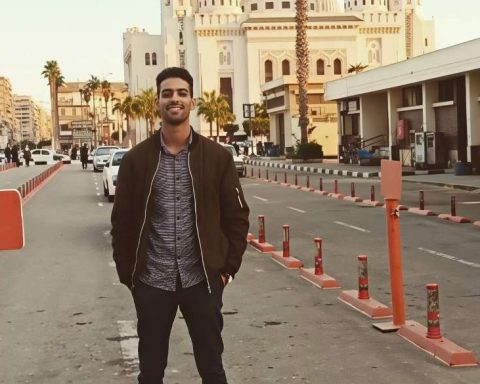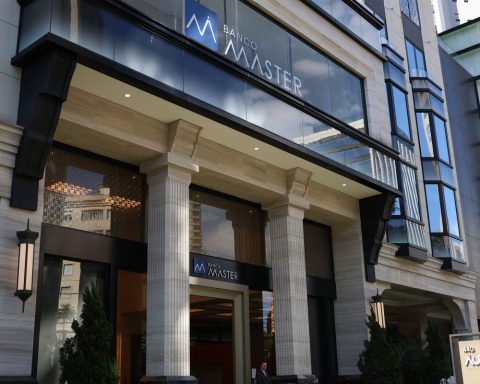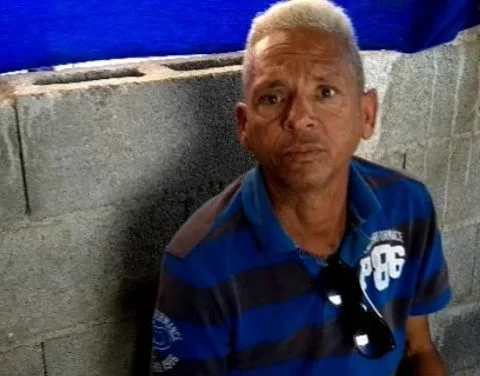“Enrique” will never forget the five days he spent detained in a cell at the former El Chipote torture center, where he was kidnapped in June 2018 after participating in a civic march in Managua.
They left him in his underwear and exposed to mosquitoes and other insects; for four consecutive nights he was beaten, interrogated and threatened with death, until they shaved his head, branded the initials of the FSLN on his back with a knife and literally sent him packing on a lonely road outside of Managua.
A few weeks later, the police tried to arrest him again and he slipped away along the sidewalks of the Máximo Jerez neighborhood in Managua, where a family opened a gate to hide him from the motorcyclists who were following him.
July 25, 2018 was the last time he was in Nicaragua, because his mother begged him to leave, as she preferred to have him far away than dead.
The exit from Nicaragua
He arrived illegally in Costa Rica that year and the first eight months were filled with depression and fear. The stress of exile and the trauma of torture and persecution plunged him into despair.
Related news: Operation leaves 17 detained in Costa Rica for migrant trafficking
“I didn’t want anything with life, I just wanted to cry and see everything grey. The family that gave me shelter did everything to support me, but when they saw that I didn’t react, they threatened to throw me out if I didn’t change my attitude. They sent me to a psychologist who treated me for a year and thank God I managed to improve my attitude,” he says from San José, where he currently lives.
For “Enrique,” the psychology sessions helped him overcome his fear and trauma, but when he thought he had overcome everything, something changed his life: “I was still using a Claro number from Nicaragua, because I hadn’t bothered to change it, and suddenly one day I received a WhatsApp message from an unknown number: it was a photo of me sitting in the central park.”
“We’ve got you, traffic cop,” they told him. He thought it was a joke and immediately thought about deleting the message, but a few days later he received three more messages with photos of him from his old life in Managua and a photo of him in a mall in San José, drinking coffee.
“I couldn’t take it anymore, I was terrified and I began to suffer again the ravages of fear that I thought I had overcome,” says “Enrique,” now 28 years old and seeking asylum in a program in the United States.

“Last year, after taking a lot of security measures, I applied for the Safe Mobility program and God willing, in two weeks I will return to Wisconsin, United States,” said the former university student of the former Central American University (UCA).
The reason for applying for the program, he says, was fear of being a victim of extraterritorial revenge by the Sandinista dictatorship.
They prefer to leave Costa Rica
It is estimated that more than 35,000 Nicaraguan exiles living in Costa Rica have applied to the Safe Mobility program to travel to the United States, and among the main reasons given is the fear of being targeted by the extraterritorial revenge of the Ortega-Murillo family.
A Nicaraguan journalist, former reporter for one of the last written media outlets to circulate in Nicaragua, is also awaiting a travel date to the United States, after being approved in a long process with the office of the United Nations High Commissioner for Refugees; the International Organization for Migration (IOM) and the United States Citizenship and Immigration Service (USCIS).
Costa Rica is no longer a safe place
He says that for three years he thought that nothing could happen to him if he left Nicaragua and settled in a small city within the Greater Metropolitan Area, but one day he discovered something that filled him with fear.
“In February of this year I went to the Refuge Unit to process an expired work permit; as always the line was full of migrants asking for refuge or processing paperwork, but to my surprise I saw two of my neighbors from my municipality who were intelligence police officers in line,” he says.
Related news: Costa Rica rejects UK request to receive African migrants
One of them, he recalls, worked at the Judicial Assistance Department and was the father of a very good childhood friend of his; the other was his brother-in-law, the partner of the younger sister of his best friend’s father.
“Before 2018, we had no problems with dealing with them because we had known them for years, they were even helpful and celebrated the Purísima every December. After 2018, one of them, the youngest, came to my house to offer me a job as an undercover agent for the newspaper. I refused and he became my enemy,” he says.

Harassment did not stop
He says that at that time the two men were standing in line at Immigration and it seemed suspicious and worrying to him.
He says he called their home to find out about them and it turns out that just a few weeks earlier the two men were still working for the police in uniform and with service weapons.
“A neighbour of theirs, a friend of mine, told me: those two are still police officers. So I asked myself: What can they be doing here? Nothing good can be expected from them,” he said.
The former reporter says that after that he decided to apply for the Safe Mobility program and move away from the proximity to Nicaragua.
“What happened to Joao Maldonado a few days earlier increased my stress and I told myself: ‘I don’t feel safe here’. Now the hitmen operate with impunity and it is not unreasonable to think that one day the dictatorship could hire them to attack opponents and although I no longer work in journalism, nothing prevents them from affecting me too,” he commented.
Staying in Costa Rica should be considered
Another reporter, active in San José as a contributor to a digital platform, comments that in an online workshop with lawyer Daguer Hernández, former deputy director of Migration in Costa Rica, he warned them to consider settling in this country “because there is no security for exiles of a certain profile.”
Related news: Costa Rica will assign jobs to 410 Nicaraguan migrants
“I was not thinking of applying for the program because I have managed to settle here, but after analyzing various aspects of the country, seeing the increase in organized crime and the cordial treatment of President Rodrigo Chaves with Daniel Ortega and Rosario Murillo, I ended up convinced that for an active journalist it is too much of a risk to be in Costa Rica,” he said.
Returning to Daguer Hernández’s statements, he recalls that he told them: “the Costa Rican government has some agreement with the Nicaraguan government, for reasons of commercial issues and the flow of migrants, but in addition this (Costa Rican) government is making some concessions to Daniel Ortega, including the consular registration of asylum seekers and the delivery of some of them to the Nicaraguan government.”
“That is why I have told some high-profile asylum seekers that they should try to find a third country like the United States where they can seek refuge, because Costa Rica has become a little unsafe for people with a certain profile, whose asylum application can be eliminated by the government and handed over to Nicaragua after a summary process,” Hernández told them.
“When he told us that, which was something that some of us were already thinking about, I said that I had to make a decision and I decided to apply for the program and I am in the process of traveling to the United States,” said the reporter.
Many turn to the Safe Mobility program
According to the journalist, many colleagues have already left Costa Rica by this route and others are thinking of applying for the Safe Mobility program because they fear that at any moment things “might get difficult here.”
“You know that there is no journalist who does not analyze the situation and evaluate the aspects that are known. For example, the fact that the regime has decided to send Valdrack Jaentschke as an official of the Nicaraguan embassy in Costa Rica is not a coincidence. We all know that this man is a former State Security agent and did not come to Costa Rica as a tourist,” he said.
“What I think, and this is my observation, is that Valdrack has already done the dirty work, he set up a spy structure, a mapping of people, journalists, lawyers and other actors and at any moment they are going to start hunting us down and disguising them as common crimes, taking advantage of the insecurity that prevails here due to the actions of drug traffickers,” said the journalist, adding that the fear is not only among journalists or activists, but among ordinary people.
The Safe Mobility Program
Safe Mobility is a United States government initiative that provides opportunities for refugees and migrants to move and settle in the United States in a regular and safe manner. To be eligible, you must participate in a process that varies in time.
The program is aimed at Nicaraguans, Ecuadorians and Venezuelans who arrived in Costa Rica before June 12, 2023, and was created to “help refugees, asylum seekers, stateless persons and migrants, so that they do not have to undertake dangerous journeys in search of safety and better opportunities,” the program states on its website.
